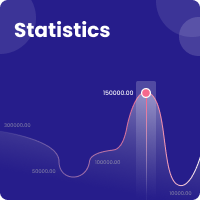The post-organic condition: topic of meeting and tension between bioethics and biopolitics
Abstract
Digital technology has contributed to Biology mainly through the new life sciences: Molecular Biology and Genetics. These contributions have set in motion a redefinition of the human condition. Human post-evolution, defined as overcoming the limitations of the biological body, is now possible through the body’s endo-colonization with miniature devices produced by nanotechnology, and their connective expansion using intangible energy applications. It is possible to foresee a future with bodies and subjectivities with significant qualitative enhancements through developments in biotechnology and computer science. The results of the mere drift of natural selection will be made obsolete. This is nothing less than the real possibility of overcoming the human condition. Under these conditions -postmodern and posthuman, men face problems with their identity (i.e. their ontology). These problems are related to technological frenzy and computer paroxysm, whether as the possibility of a different way of being, or as alienation from men’s organic base. The task for bioethics is making decisions about the direction of this post-biological evolution. This involves decisions about restrictions to scientific research and its application: Who and under what conditions would be authorized to perform this research, and what procedures would corroborate such decisions. Processes of individual subjectification as members of a group or entrepreneurs of themselves involve unavoidable risks. These risks are inherent to the subtle techniques of the conduct of conduct involved in the management of biotechnological human capital. From a biopolitical perspective, this relates to the private management of risk, and the emergence of a subjectivity committed to its effective administration, which optimizes genetic capital as part of one’s own human capital. In turn, a logic of privatization of destiny is reinforced: an obligation to care for the body that is circumscribed by the market forces that make it feasible.
Downloads
Disciplines:
Bioethics, Social Sciences, Medical SciencesLanguages:
esReferences
•Agamben, G. (2008). La potencia del pensamiento. Barcelona: Anagrama.
•Beck, U. (1994a). La sociedad del riesgo. Hacia una nueva modernidad. Barcelona: Paidós Básica.
•Beck, U. (1994b). Modernización reflexiva. Madrid: Alianza.
•Capra, F. (1998). La trama de la vida. Una nueva perspectiva de los sistemas vivos. Barcelona: Anagrama.
•Castro-Gómez, S. (2010). Historia de la gubernamentalidad. Razón de Estado, liberalismo y neoliberalismo en Michel Foucault. Bogotá: Pontificia Universidad Javeriana.
•Clark, A. (2003). Natural-born cyborgs: minds, technologies and the future of human intelligence. Oxford: Oxford University Press.
•Deleuze, G. y Guattari, F. (2002). Mil mesetas. Valencia: PreTextos.
•Deleuze, G. (1999). Post-scriptum a las sociedades de control. Valencia: Pretextos.
•Ewald, F. (1991). Insurance and risk. En The Foucault effects: studies in governmentality. Chicago: University of Chicago Press.
•Foster, H. (2002). Diseño y delito. Madrid: Akal.
•Foucault, M. (2007). Nacimiento de la Biopolítica: curso en el College de FRANCE (1978-1979). Buenos Aires: Fondo de Cultura Económica.
•Fukuyama, F. (2002). El fin del hombre. Consecuencias de la revolución biotecnológica. Barcelona: Ediciones B.
•Gómez I., J. (2005). Arte hoy. Fotografía. San Sebastián: Nerea.
•Habermas, J. (2002) El futuro de la naturaleza humana. ¿Hacia una eugenesia liberal? Barcelona: Paidós Ibérica.
•Haraway, D. (1995). Manifiesto para Cyborgs. Valencia: Episteme SL, Centro de semiótica y teoría del espectáculo, Universitat de Valencia.
•Jacob, F. (1986). La lógica de lo viviente. Barcelona: Salvat.
•Kosko, B. (1995). Pensamiento borroso. Barcelona: Crítica.
•Lemke, T. (2007). Gouvernementalitat und biopolitik. Wiesbaden: VS Verlang fur Sozialwissenschaften.
•Levinas, E. (1993). El tiempo y el otro. Barcelona: Paidós Ibérica.
•Lewontin, R. (2001). El sueño del genoma y otras ilusiones. Barcelona: Paidós.
•Pennisi, E. (2010). Synthetic Genome Brings New Life to Bacterium. En Science, vol. 328, pp. 958-959. Published by AAAS, 21 May 2010.
•Kurzweil, R. (2005). The singularity is near: when humans trancends biology. Nueva York: Viking.
•Negroponte, N. (1995). El mundo digital. Barcelona: Ediciones B.
•Rifkin, J. (2009). El siglo de la biotecnología. Barcelona: Paidós.
•Sfez, L. (2008). La salud perfecta. Buenos Aires. Prometeo.
•Shiva, V. (2001). Biopiratería: el saqueo de la naturaleza y el conocimiento. Barcelona: Icaria.
•Sibilia, P. (2009). El hombre postorgánico. Buenos Aires: Fondo de Cultura Económica.
•Sloterdikj, P. (1999). El imperio ausente y la hiperpolítica. La metamorfosis del cuerpo social en los tiempos de la política global, en: Iván de la Nuez (ed.), Paisajes después del Muro. Barcelona: Península.
•Sloterdijk, P. (2000). Normas para el parque humano. Madrid: Siruela.
•Sloterdijk, P. (2006). El hombre operable. Notas sobre el estado ético de la tecnología génica. Traducción Goethe Institut Boston, para Revista Observaciones Filosóficas.
•Varela, F. (2000). El fenómeno de la vida. Santiago de Chile: Dolmen.
•Venter, C. (2012). Crear vida artificial. Disponible en: www.youtube.com, 20-11-2012.
•Weizenbaum, J. (1978). La frontera entre el ordenador y la mente. Madrid: Pirámide.
•Zylinska, J. (2009). Bioethics in the age of new media. London: MIT Press.












